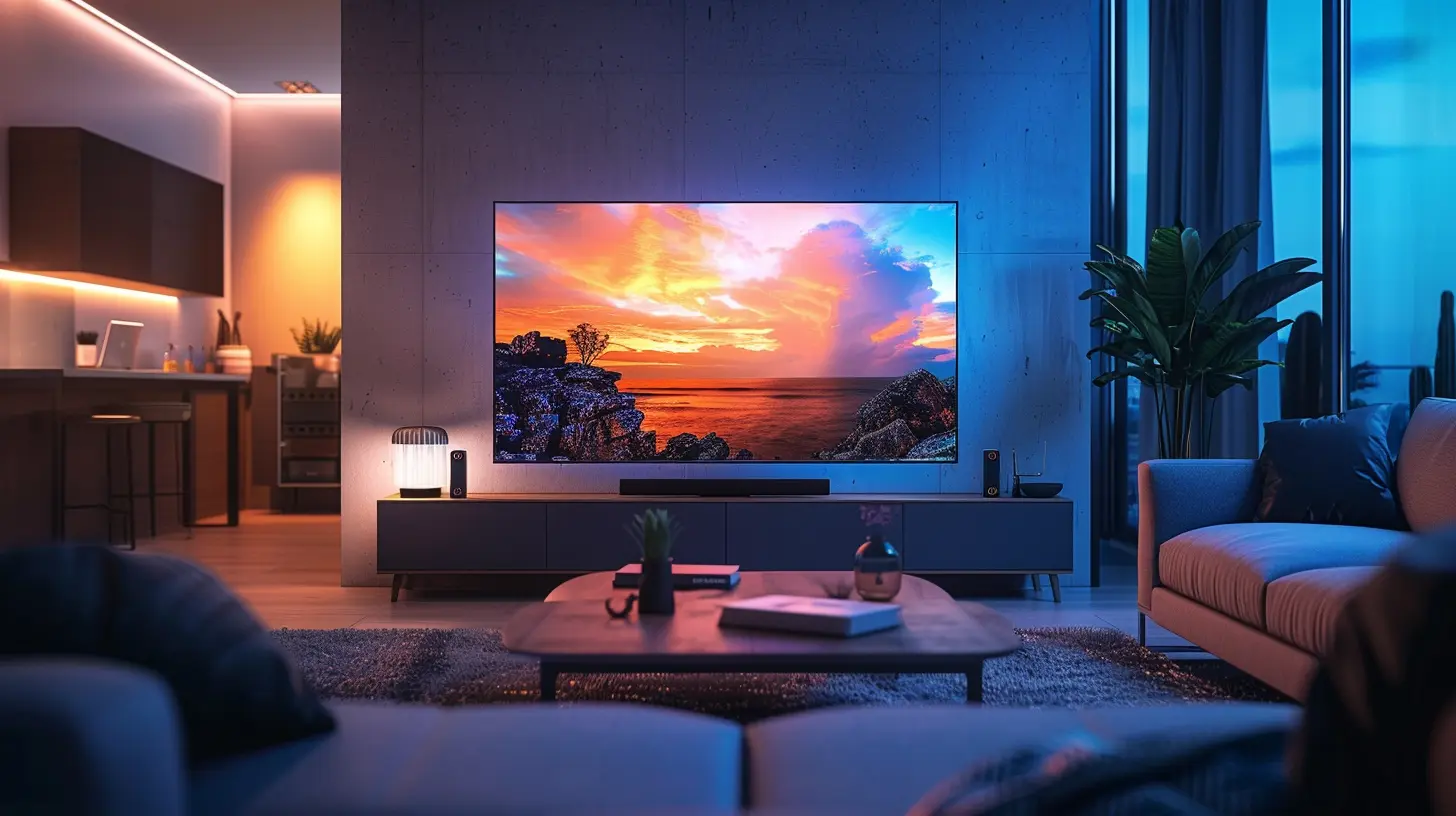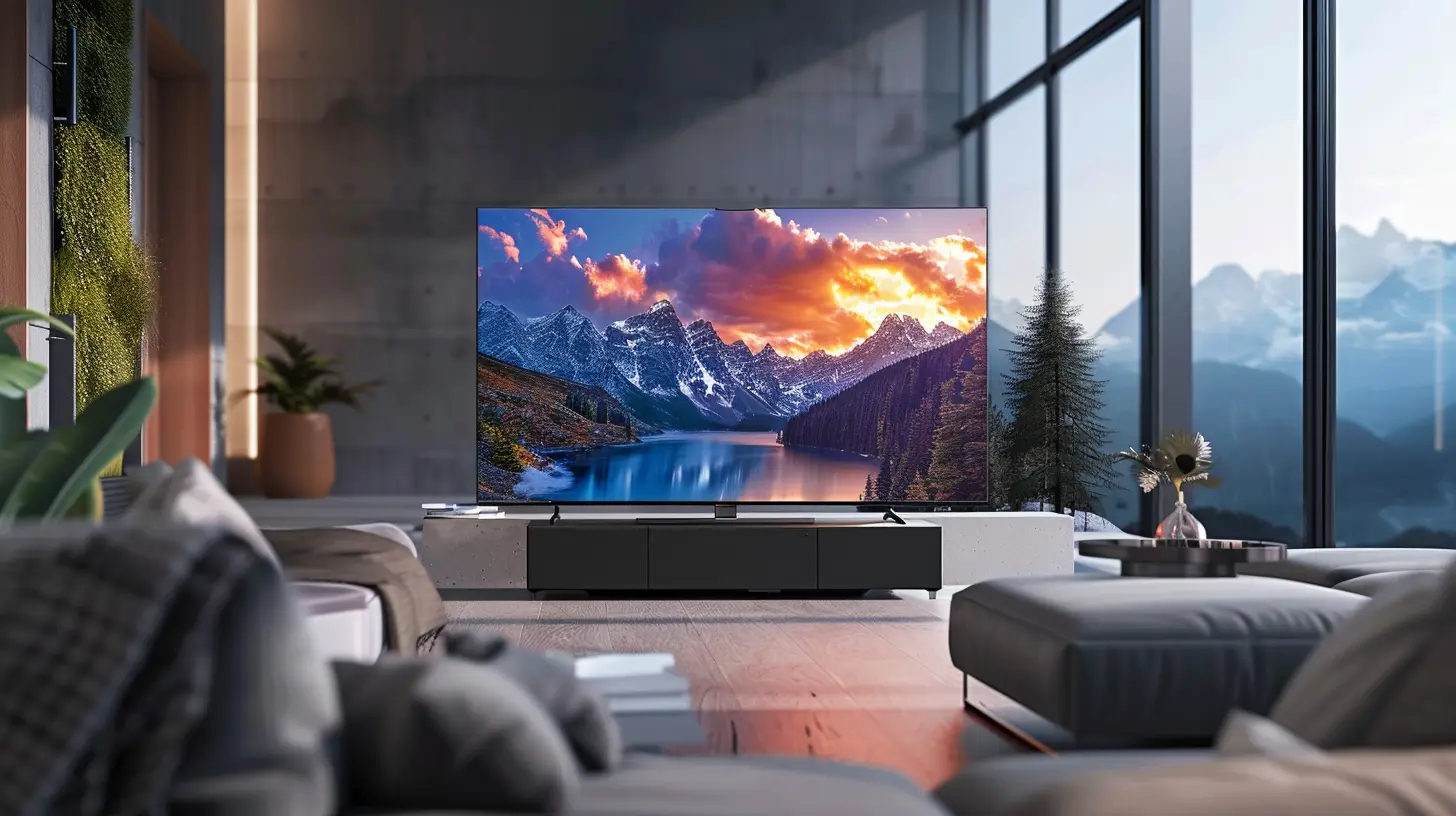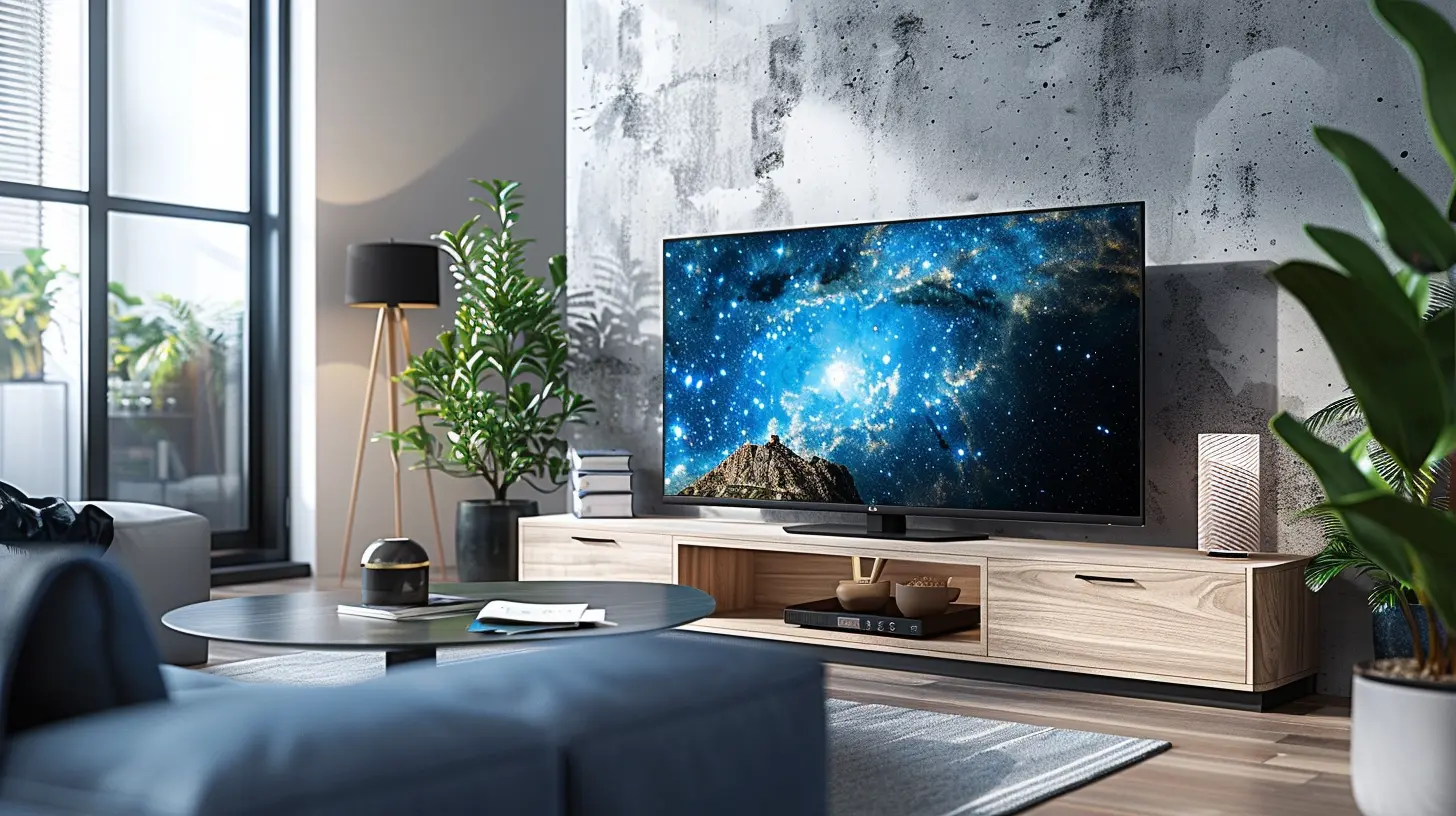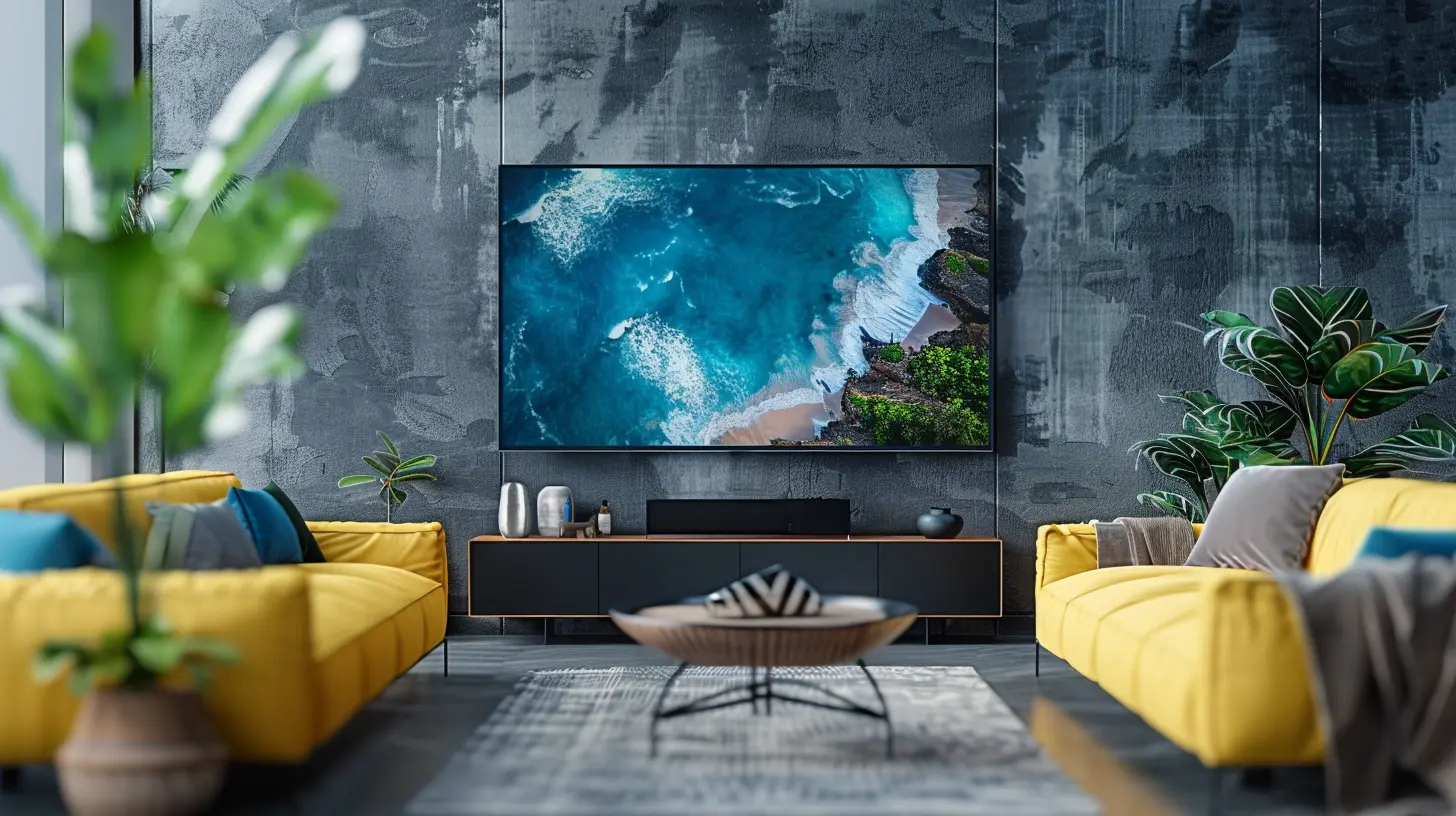Smart TVs and 8K: Is It Worth the Investment Yet?
16 October 2025
With technology evolving at lightning speed, Smart TVs have come a long way in the past decade. From 1080p Full HD to 4K Ultra HD, and now, the latest buzz—8K resolution. But the big question is: Is it worth the investment yet? Should you shell out thousands of dollars for an 8K TV, or is it just another flashy upgrade with minimal real-world benefits? Let’s dive in and figure out if 8K is truly the future or just an overpriced gimmick. 
What Exactly Is 8K Resolution?
Before we jump into whether 8K TVs are worth it, let's break down what it actually means.Resolution refers to the number of pixels on a screen. The higher the resolution, the sharper and more detailed the picture quality. Here's a quick comparison:
- Full HD (1080p) – 1,920 × 1,080 pixels
- 4K Ultra HD (2160p) – 3,840 × 2,160 pixels
- 8K Ultra HD (4320p) – 7,680 × 4,320 pixels
That means an 8K TV has four times the pixels of a 4K TV and sixteen times that of a 1080p TV. Sounds impressive, right? But does that increased resolution actually make a noticeable difference? 
The Big Question: Can the Human Eye Even Notice 8K?
Here's where things get tricky. The human eye has its limits when it comes to perceiving detail. At a normal viewing distance, most people can’t even distinguish the difference between 4K and 8K unless they're sitting extremely close to the TV.To truly appreciate 8K, you’d need:
- A massive screen (think 75 inches or larger).
- To sit very close (closer than most people would realistically sit).
For the average living room setup, the difference in sharpness between 4K and 8K is almost negligible. So unless you have a home theater setup with a gigantic screen, the extra resolution might not be worth it. 
The Biggest Problem: Where’s the 8K Content?
A major hurdle for 8K TVs is the lack of 8K content. Even today, 4K content is just starting to become mainstream. Streaming platforms like Netflix, Amazon Prime, and Disney+ offer some 4K content, but 8K? Almost nonexistent.Here’s why:
- Broadcast TV barely supports 4K. Most television channels still use 1080p or even 720p resolution.
- Streaming services don’t prioritize 8K. Even high-quality streaming eats up a ton of bandwidth. 8K would require a super-fast internet connection (100 Mbps or more) to stream properly.
- Movies and shows aren’t filmed in 8K. Most Hollywood productions are filmed in 4K or even 2K, with some exceptions.
For now, if you buy an 8K TV, you're mostly watching upscaled 4K or 1080p content, which won't look drastically different from native 4K. 
The Hardware Hurdle: Do You Have the Right Setup?
Even if you somehow find 8K content, you’ll need hardware powerful enough to handle it. Here's what you would need for an optimal 8K experience:- A High-End Streaming Device – Your usual Apple TV, Fire Stick, or Roku probably won’t support 8K playback.
- An Ultra-Fast Internet Connection – At least 100 Mbps or higher if you’re streaming.
- An Advanced HDMI Cable – Regular HDMI cables won't cut it; you'll need an HDMI 2.1 cable to handle 8K signals.
- A Cutting-Edge Gaming Setup – If you're a gamer, you'll want a PC with an RTX 3090/4090 or a PS5/Xbox Series X that supports 8K output.
If you’re missing any of the above, your 8K TV is basically just an overpriced 4K TV.
The Price Factor: Is 8K Worth the $$$?
Money talks, and in this case, 8K TVs are still ridiculously expensive. Expect to spend anywhere from $2,000 to $10,000+ depending on the brand and model.Now, let’s stack that against 4K TVs, which have dropped significantly in price. You can snag an amazing 4K TV for under $1,000 with incredible features like OLED, high refresh rates, and full HDR capabilities.
Why pay more when:
- There’s almost no 8K content available?- The difference between 4K and 8K is barely noticeable?
- 4K TVs already look stunning and are WAY more affordable?
In most cases, investing in a premium 4K TV makes much more sense than splurging on an 8K TV right now.
When Will 8K Actually Be Worth It?
Let’s be real: 8K is the future, but that doesn’t mean it’s the present. If history tells us anything, big tech shifts take years to become mainstream.Remember when 4K first launched? It took nearly a decade for prices to drop and content to become widely available. The same will likely happen with 8K.
It might take another 5-10 years before 8K is fully adopted, meaning:
- TV broadcasters start using 8K signals.
- Streaming services prioritize 8K content.
- Gaming consoles and PCs make 8K their standard.
Until then, jumping on the 8K bandwagon now might be premature.
Verdict: Should You Buy an 8K TV Right Now?
In a nutshell: No, not yet.While 8K sounds exciting, the reality is that it’s still in its infancy. The lack of 8K content, the high costs, and the minimal real-world difference from 4K make it a tough sell.
Instead, if you’re looking for an upgrade, you’re better off investing in:
- A high-quality 4K OLED or QLED TV.
- A TV with excellent HDR, higher refresh rates, and superior contrast.
- A home theater setup that enhances your 4K viewing experience rather than chasing 8K prematurely.
Unless you’re an early adopter with deep pockets, it's wise to wait until 8K becomes the new standard. In the meantime, 4K still reigns supreme in terms of value, content availability, and overall experience.
Final Thoughts
While technology keeps moving forward, not every new feature is worth the investment right away. 8K might be the future, but for now, 4K is the king. If you’re considering a new TV, save your money and get a top-tier 4K model instead. By the time 8K becomes mainstream, prices will be lower, content will be abundant, and you’ll actually get to enjoy the full benefits of this next-gen resolution.Until then? Sit back, relax, and enjoy your 4K TV.
all images in this post were generated using AI tools
Category:
Smart TvsAuthor:

Jerry Graham
Discussion
rate this article
1 comments
Renee Hardy
While 8K TVs offer stunning clarity, the current content and broadcast limitations make it less compelling for most consumers. Unless you're an early adopter or have specific needs, investing in 8K may not provide a noticeable benefit over high-quality 4K options right now.
October 20, 2025 at 2:21 AM

Jerry Graham
I agree—while 8K TVs provide impressive visuals, the lack of readily available content makes them less appealing for the average consumer. High-quality 4K still offers great value for most users.


